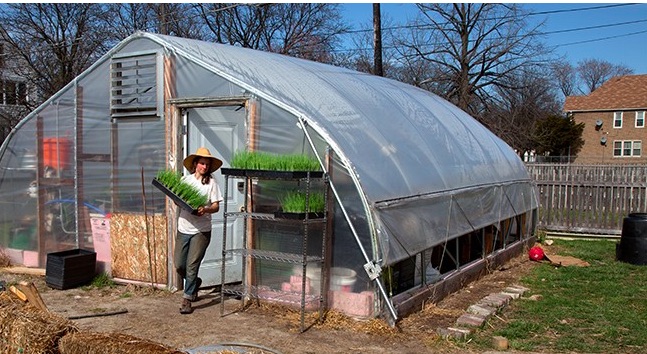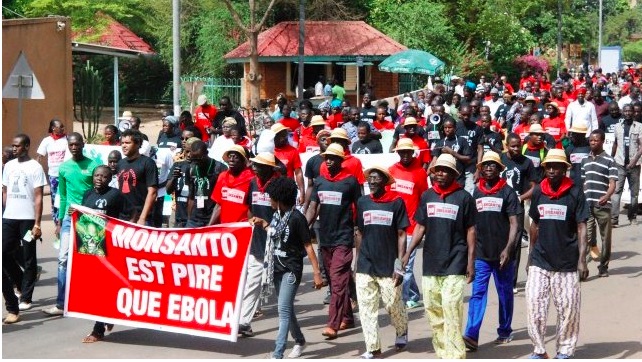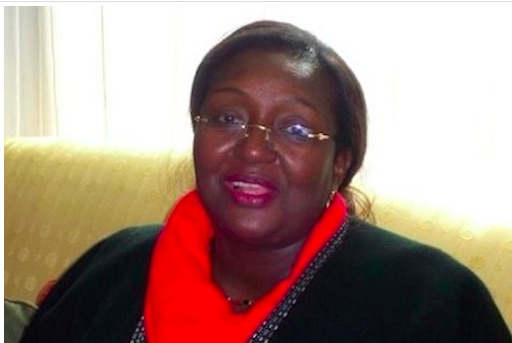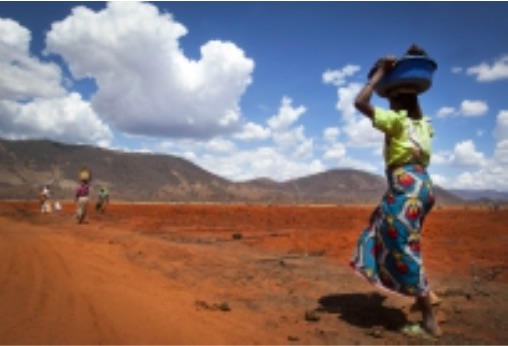. . SUSTAINABLE DEVELOPMENT . .
An article by Danielle Nierenberg, Savannah Knell, and Emily Nink for Foodtank
Permaculture is an innovative ethics and design based process used to make agriculture more sustainable, restore soil, conserve water, and redirect waste streams. The process is inspired by the everyday relationships found in nature. The primary goal of adopting permaculture principles is to empower individuals to be their own producers and move away from being dependent consumers. These techniques are practiced in very different ways globally based on climate and resources particular to the region. While there is variety in the methodology of permaculture practices, the holistic approach remains constant. The easy to remember primary ethics of permaculture include earth care, people care, and resource share.
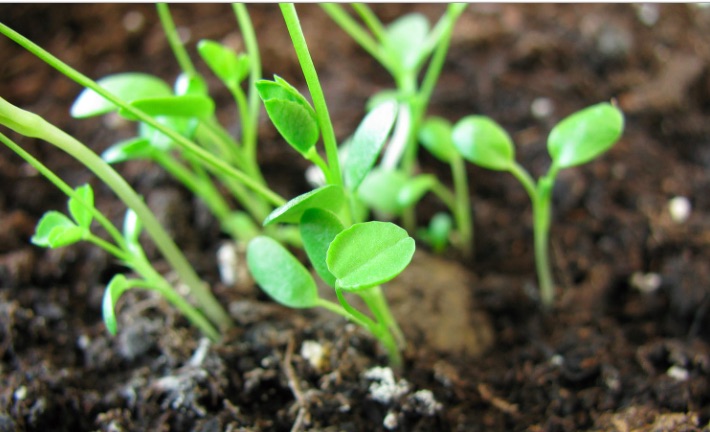
Permaculture is an innovative ethics and design based process used to make agriculture more sustainable, restore soil, conserve water, and redirect waste streams. The process is inspired by the everyday relationships found in nature. The primary goal of adopting permaculture principles is to empower individuals to be their own producers and move away from being dependent consumers. These techniques are practiced in very different ways globally based on climate and resources particular to the region. While there is variety in the methodology of permaculture practices, the holistic approach remains constant. The easy to remember primary ethics of permaculture include earth care, people care, and resource share.
There has recently been a call for research on the long-term benefits and participation rates of individuals adopting the principles. According to Scott Pittman, the director of the National Permaculture Institute, approximately 100,000 to 150,000 students have completed the certificate course with around 50,000 students from the United States. There is a wide body of literature confirming many success stories of permaculture being implemented around the globe. According to Appleseed Permaculture, over 1,000,000 people are now certified in permaculture in more than 140 countries with more than 4,000 projects on the ground.
The use of permaculture has been instrumental in combating malnutrition in Malawi. Never Ending Food is an organization dedicated to Permaculture and nutrition, Africa. Stacia and Kristof Nordin focus on designing systems for sustainable living. The organization has been facilitating various sessions and Permaculture Design Courses throughout Malawi. Because Malawi has a 12-month growing season, access to water, and a large genetic base of local food crops, the incorporation of permaculture has the potential to produce large amounts of food throughout the year and bring about positive agricultural change. By making low-cost improvements to family farms, Malawian families can increase their overall household food security. To increase awareness about the benefits of permaculture, the Kusamala Institute of Agriculture and Ecology implemented the Red Soil Project to create a means for farmers to share knowledge and experience about the process. The International Fund for Agricultural Development (IFAD) reported that permaculture is a viable solution to help combat food insecurity for the 15 percent of the global population that’s malnourished. Permaculture farmers in Malawi have on average, better food security, larger diet diversity, and higher crop yield compared to conventional farmers.
The Worldwide Permaculture Network has published an extensive database on which to understand better what projects exist all over the world. The site allows you to search for projects based on keywords, climate zone, and types of projects to better filter your results. Currently, the site features 1957 permaculture projects around the globe.
To get a better sense of what projects are happening across the globe, Food Tank highlights 16 successful projects featuring permaculture use:
1. Ferme MiKu Valley Farm – MiKu is located in rural Eastern Ontario, Canada and is a successful demonstration and educational site. The farm spans 68 acres and is home to a small livestock group, expanding market gardens, food forest development, and an educational site with a permaculture design. They welcome wwoofers in three seasons to help promote their practice of permaculture and gain hands on experience.
2. Findhorn Ecovillage – The Findhorn Foundation community is an experiment in conscious living, an education center, and ecovillage located on the west coast of Scotland in the United Kingdom. The Foundation prides itself on being sustainable not only with regard to environmental terms, but also in social, economic, and spiritual terms. Findhorn offers a permaculture design course to provide a comprehensive introduction to permaculture principles, design practices, and their application.
3. Green Beat Farm – Green Beat is a demonstrative, productive, experimental, and educational farm built on permaculture principles located in Tulum, Mexico. The farm produces vegetables and microgreens for local restaurants, Hotels, and community members. Main crops produced include Arugula, Chard, Kale, Mustard Greens, and Broccoli. Green Beat additionally hosts a large volunteer program that welcomes individuals from all over the globe.
(continued in right column)
The role of organic farming, Can it help preserve the planet and end world hunger?
(Article continued from the left column)
4. Habiba Organic Farm – Located in Nuweiba, Eygpt, Habiba Organic Farm is a former piece of desert on a Bedouin settlement turned into fertile land. The primary interest of Habiba farmers is to experiment to develop appropriate farming techniques for the Sinai Peninsula. This area has previously been difficult in which to grow viable crops. The farm has been successful in introducing a number of crops that can thrive in desert conditions.
5. Happy Food Farm – Based in Nanning, China, this farm grows fruit, vegetables, and flowers, and breeds fish and chicken. The farm is almost entirely self-sustained on the fruits and vegetables it grows. Furthermore, the farm has a dedicated practice to teaching local children about the benefits of permaculture and has developed educational programming.
6. IDEP Foundation – IDEP is a local Indonesian NGO based in Bali, Indonesia. The organization develops and delivers training, community programs, and media related to sustainable development through the permaculture method and disaster management. Their work throughout the foundation covers four areas that make up the cycle of resilience including permaculture, disaster preparedness, emergency response, and community recovery.
7. Institute of Permaculture El Salvador – This permaculture movement is a grassroots organization of sustainable farmers and makes up an alliance of three local permaculture associations: The Ecological Association of Permaculturists of Suchitoto, The Ecological Association of Indigenous Kakawira Farmers, and The Association of Permaculturists of Torola. Their mission is to promote permaculture for the development of a healthier, wiser, and more ecologically sustainable society.
8. Koanga Institute – Koanga is home to New Zealand’s largest heritage organic seed collection. The Institute provides a home for the Permaculture Research Institute of Wairoa, New Zealand and is internationally known for producing competent and knowledgeable students and teachers. Workshops are geared toward individuals who are interested in living sustainably and empowering change in their communities.
9. Permaculture Association of South Australia – PASA is a non-profit organization whose primary purpose is to promote, practice, and represent permaculture in South Australia. The organization focuses on the following permaculture ethics: Care for the Earth, Care of People, Limiting Consumption, and Fair Distribution of Resources. PASA provides a means for local groups to be connected to one another and find out about projects in South Australia, Australia, and the rest of the globe.
10. Permaculture in Ukraine – This NGO aims to unify the efforts of those who have successfully applied permaculture techniques in their households and to give them an opportunity to share experiences and support others. Their mission is to spread knowledge and promote the idea of permaculture in society. Future goals include establishing the School of Permaculture in Ukraine in order to provide permaculture instruction at a high level, taking into consideration local conditions and needs.
11. Permaculture Institute of North America – PINA supports students and experienced practitioners of permaculture in North America and Hawaii. The primary goals of PINA include maintaining professional standards in permaculture design, teaching, and practice. The grassroots organization additionally supports permaculture education through a certification process that recognizes exceptional achievement and excellence.
12. Permaculture Institute Thailand (PIT) – The Institute brands themselves as a Thailand permaculture support organization that encourages, supports, and facilitates all forms of education, demonstration, and farmers associated with practicing permaculture. The mission of PIT is to spread the ethics, principles, and theory throughout Thailand, to encourage a sustainable livelihood, and to address the local issues of poverty.
13. Philly Permaculture – This organization serves as a local forum for all things permaculture based in Philadelphia, Pennsylvania. They are showing several videos about mushrooms and will explore and discuss how mushrooms can be used as a healing agent in addition to a main ingredient in vegetarian based recipes. They will also be covering basic cultivation techniques. Each month they select a different educational film to watch and discuss how to incorporate what they learned into their permaculture practices.
14. Regenerative Kitchen Garden & Food Forest – Located in Anjuna, India, this project focuses on ecosystem regeneration of land that for 20 years had vegetation systematically burnt. The regenerative mission consisted of diversifying the crops by planting five coconut trees, neem trees, and legumes.
15. Senegal Permaculture Project – This project is based in Sare Suma, Senegal and was implemented at under the request of a local Senegalese landowner to encourage sustainability and local growth. The project is focused on using a local 11-acre farm as a demonstration and educational site for fellow villagers. The permaculture systems demonstrated will include harvesting water, planting trees, permaculture guilds, building soil fertility, and animals in a permaculture system.
16. Third Millennium Alliance – The Alliance emphasizes a holistic approach to preserve the last remnants of Ecuador’s coastal Pacific Forest and to empower local communities to restore and preserve what was lost. Their practices encourage economic and environmental sustainability in the region for the local communities. To date, they have planted over 20,000 trees and developed an experimental fruit tree orchard with over 50 species of food trees, a vegetable garden, and a tree nursery.
(Thank you to Janet Hudgins, the CPNN reporter for this article.)
